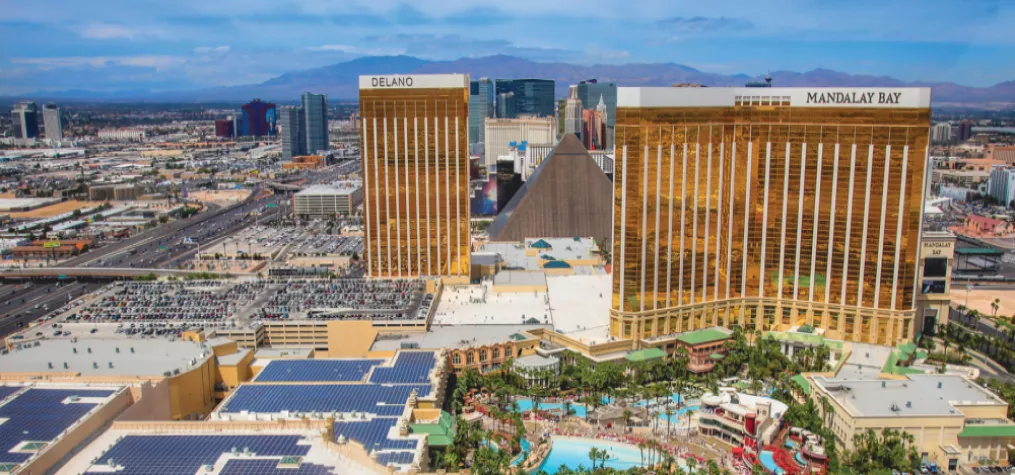An Event Manager's Guide to Crisis Communications Around COVID-19 Concerns

The events industry is filled with a lot of uncertainty right now due to the COVID-19 outbreak and subsequent event cancellations.
“I don’t think there’s a single event scheduled for the next 90 days that isn’t currently fielding concerns about coronavirus from attendees and stakeholders,” says Alex Plaxen, vice president, experience strategy for Nifty Method Marketing and Events.
Plaxen, who has been educating the events industry on crisis communications for the past two and a half years, stresses that if you have an event scheduled anytime in the coming months, you need to be communicating with your stakeholders now about what’s to come.
Communications that address common concerns will help allay fears and reassure your event participants that you are aware of the situation, concerned for their safety and well-being, and are prepared.
We asked Plaxen for his advice to help planners respond quickly to coronavirus concerns. He suggests the following:
- Craft top-level messages, plus messages for each of your stakeholders — attendees, exhibitors, sponsors, venues, suppliers, employees, etc. — to address their specific concerns and provide relevant information.
- Determine what channels you will use to communicate these messages, and be consistent. If you are using multiple channels, post on all of them simultaneously, or as close to it as possible. Pick a central location for updates, such as a dedicated page on your website, to which all other channels will point.
- Be transparent. If there is any chance you will cancel the event, let your stakeholders know this in advance. Provide links to all the sources you are using to help make the determination – the CDC, local government, travel advisories, etc. Give your attendees and sponsors the time and information they need to make their own decisions about canceling.
- Communicate frequently. The RSA security conference, which was held Feb. 24-28 in San Francisco, maintained a Novel Coronavirus Update webpage where company officials kept attendees and interested parties up-to-date on recent activities. These included public statements, exhibitor withdrawals, and health and safety measures being put in place. Comms were regularly sent out to point attendees to the page.
- Communicate real information. Are you giving refunds? What is the specific plan to do so, or not? If you don’t have an answer to that yet, let attendees know (via the channels you already determined) you will communicate details as soon as you have them. For example, “Refund information will be provided to you in the next 48 hours.” If you don’t have an answer, it’s better to say, “We will get back to you” and ideally provide a timeframe than to ignore the question.
- Provide educational resources. In your communications and on your website, provide links to sources that event participants can use to educate themselves. This may include the CDC, government, travel authorities and local CVB. Find our list of compiled resources here.
- Avoid blanket statements. Be very careful with your wording to avoid coming off as insensitive. For example, in a recent Events Industry Council webinar, Barbara Dunn, partner at Barnes & Thornburg LLP, said to avoid using language such as, “There [are] no current state or federal travel restrictions in the U.S.; therefore our meeting will go on as scheduled.” While referencing the lack of restrictions is fine as a reassurance, the statement on its own can leave the impression that the organization doesn’t care about people’s concerns.
- Be responsive. Check your social media channels frequently, and continue to point people to your central source of information and updates. Respond to people who reach out to you, even if it is just to say you will get back to them in a certain timeframe, or the information they seek will be posted in a certain location on a certain day.
- Be empathetic. The decisions you make around canceling or forging ahead with your event may have ramifications that extend beyond your immediate ecosystem and even beyond the hospitality industry. Many contract, temporary and hourly workers are being impacted by event cancellations or reductions in performance. By acknowledging this impact, and these people, you humanize your company or organization.
Event Communications Message Mapping
When determining your communications plan for your event regarding the COVID-19 outbreak, Plaxen recommends using message mapping, which is creating three key messages and three supporting points for each. This can be visually diagrammed for at-a-glance responses. Here are general top-level communications messages for several scenarios:
The event is moving forward as planned.
- We are monitoring the situation.
- We will keep you informed.
- We are getting our information from the experts.
There is a possibility the event may be canceled.
- We will keep you updated.
- Here are links to the resources we are using to help inform our decision so you can follow along.
- Here is our refund policy, should you choose to proactively not attend/participate.
We are canceling the event.
- Based on information we’ve gathered from experts, we've made the difficult decision to cancel the event.
- Refund information will be issued in the coming days.
- If you have additional questions, please feel free to reach out to us and contact us [include contact method].
Even if your event is nine months out, Plaxen says it’s not too early to begin communications to help with your attendees’ peace of mind. He stresses that openness and honesty are key toward maintaining goodwill. “You have to let your attendees know there is a risk here that the event might not happen,” he says, “and if you're not open and honest about that, the backlash from attendees is going to be fierce.”
Crisis Communications Webinar
Plaxen will be presenting a free, 1-hour webinar with MPI on this crisis communications on March 16 at 11 a.m. CT. Register for “Crisis Communications: Coronavirus Edition” here.
Need more help putting together your crisis communications plan? You can also schedule a meeting with Alex Plaxen here.
Visit the CEN Event Industry Coronavirus Resources page for a list of industry resources and information on COVID-19.
Don't miss any event-related news: sign up for our weekly e-Newsletter HERE and engage with us on Twitter, Facebook and LinkedIn!


Add new comment